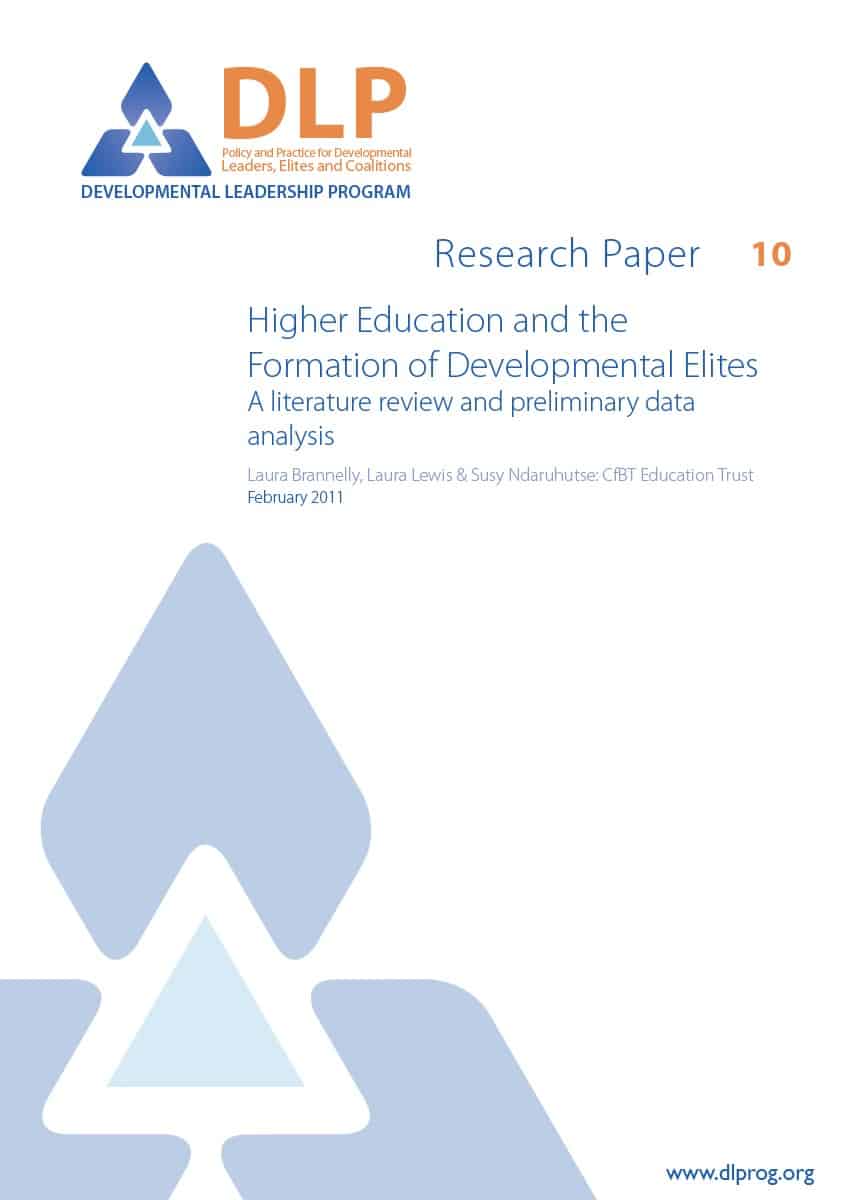There is increasing recognition that overcoming the challenges of development will require leadership across the public and private sectors. But how do developmental leaders acquire the necessary skills and values to lead? How might higher education influence this process, and how can it contribute towards improved governance?
This paper, the first in a DLP research stream on higher education, addresses the neglected question of whether and how post-primary education may contribute to the emergence of developmental leadership, using data analysis mapping of higher education gross enrolment rates with a 20-year lag against the World Bank’s Worldwide Governance Indicators, taken here as a proxy for the existence of developmental elites.
Key points:
The study identifies a positive correlation between higher education and good governance. It finds that higher education has multiple purposes; for instance, it transmits not only technical skills but can also influence values and attitudes. It also finds that its scope is broadening from its original focus on elite development to a form of universal education in many countries.
It also finds that donor support has varied over the last half century; initially highly valued as a driver of development and supported accordingly, emphasis and resources have shifted towards basic and primary education since the 1980s. Alongside an analysis of global patterns and regional variations, the report includes country case studies from Singapore, Jordan, Namibia and Zimbabwe.









